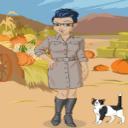Yahoo Answers is shutting down on May 4th, 2021 (Eastern Time) and beginning April 20th, 2021 (Eastern Time) the Yahoo Answers website will be in read-only mode. There will be no changes to other Yahoo properties or services, or your Yahoo account. You can find more information about the Yahoo Answers shutdown and how to download your data on this help page.
Trending News
What is a New York Colony?
HISTORY!
I need to know: 1. Natural Resources
2. Leadership of the Colony
3. Expectations and Rules for the People in the Colony
3. How Rules are Enforced
4. Financial Backing
5. What they hope to achieve
6. shelter
7. food
8. Religen/church
9. and Education
p.s. if you can't answer all of them, answer as much as you can!
2 Answers
- ChrispyLv 71 decade agoFavorite Answer
I'm assuming that you're talking of the colony that was originally settled by the Dutch as New Amsterdam, which became the British colony of New York in the 1660's, which, in turn, ultimately became part of the State of New York.
The main thing about New York is that it was a business center from almost the moment the Dutch purchased it from a group of Native Americans (who, by the way, didn't even live there and couldn't have passed title legally--it's the little quirky factoids like that that make history interesting) for about $24 worth of things from a dollar store (comparatively speaking--the thing is, the trinkets the Dutch handed over weren't nearly worth the real estate they got--or thought they did--title to in return).
The harbor made it a natural as a port, and in short order it quickly grew into a thriving center of trade (the more things change, the more they stay the same!). Things under the Dutch were pretty mellow--and profitable. These people were, unlike their English and French neighbors to the north, not really all that interested in converting the local native population--in fact, New Amsterdam didn't even have a church for twelve years after its founding, so obviously they weren't very much concerned about imposing religious orthodoxy on anyone. The Dutch, at this time, were quite liberal in their religious opinions anyway, and really quite tolerant of different spiritual points of view.
When the English took over, things didn't change all that much. Since the average citizen of New York who was of Dutch ancestry was likely Protestant, there wasn't as great a problem as there might have been if they had been, say, Belgian Catholics, because the British had at least that much tolerance--as long as you weren't a Catholic, or a Quaker, or an Anabaptist, or a Puritan, or some other sort of religious dissenter. The Dutch Calvinists rubbed along fairly well with the staunch Church of England sorts, especially when it came to trade.
Now, to turn to daily life, at first there was an abundance of seafood available. After all, it's right on the Atlantic with its bounty of shellfish and saltwater fish, and also the bonus of freshwater fish from the local rivers as well, such as the East River and the Hudson, not to mention local creeks and streams (remember, at this time Manhattan was still largely rural). There was local game as well; deer, hare, and various other small animals, as well as duck, wild turkey, and other fowl. As the colony grew and people began clearing land and farming, there were domestic animals for food, as well as dairy products such as eggs, butter, and cheese.
There was a certain carefree element to childhood, at least among the Dutch. They were people who believed in fun, and the children of New York were given somewhat more leisure than those of the Puritans. Education was generally a private affair--again, unlike their Puritan neighbors, there were no laws requiring children to learn to read and write.
As was not unusual at the time, there was a higher rate of literacy among boys than among girls--after all, the boys would grow up to be the businessmen, after all.
I know this is long-winded, and didn't answer most of your questions, but take the grain from it and, with the breath of kindness, blow away the chaff.
Source(s): a lifelong fascination with the way the early colonists lived - Anonymous4 years ago
New York colony is a colony



